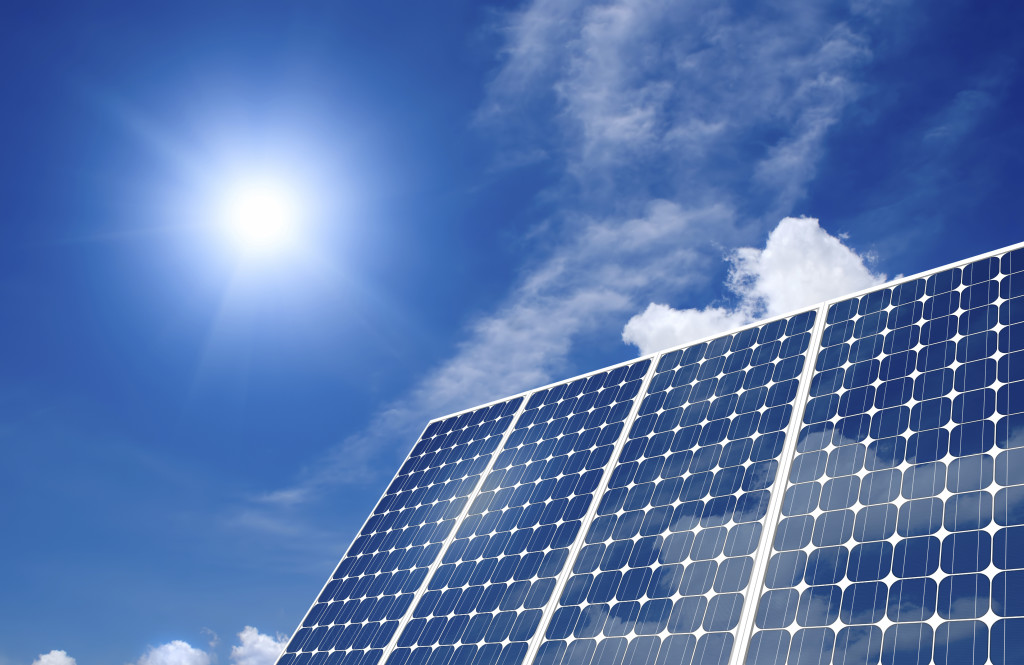Biden’s dilemma about solar panels from China

Joe Biden attacks China for Uyghur repression, but needs Xinjiang solar panels to meet his climate goals
US President Joe Biden said he wanted to collaborate with China on the fight against climate change, but he also criticized it for human rights violations. The two conflict in the solar energy industry, the New York Times wrote, and put the Biden administration on a difficult choice.
The president wants to increase the installed solar capacity in the United States to reduce the country's greenhouse gas emissions. For example, he wants clean sources to generate one hundred percent of electricity by 2035 (currently their share is around 40 percent). To succeed, annual solar installations will have to proceed at more than double the pace.
The point is, however, that China dominates the global solar energy supply chain , producing most of the materials and components for solar panels that the United States needs to meet its energy and climate goals . And some of China's largest solar component companies have partnered with government authorities on so-called Uyghur minority education and training programs in the Xinjiang region. Programs that are considered, however, practices of violation of human rights, including through forced labor.
Given that the US is almost entirely dependent on imports of Chinese solar modules – which are also cheap – Biden's plan for renewables is likely to be a major economic opportunity for China.
THE POLYSILICON IN XINJIANG
Beijing dominates not only the manufacturing of solar panels, but also the supply of raw materials and basic components necessary for their production. For example, it concentrates more than 80 percent of the world supply of polysilicon, a material used to produce photovoltaic cells. Almost half of the global polysilicon supply comes from the Xinjiang region alone. The U.S. share in this market was less than 5 percent in 2019.
As Francine Sullivan, executive of REC Silicon, a Norwegian company that produces polysilicon and has plants in the United States, summarized well, Biden's choice is the following: "Do you want to defend human rights in China, or do you want solar panels cheap? ".
Last month Richard Trumka, president of AFL-CIO, the largest trade union group in the United States, asked the Biden administration to suspend imports of solar products containing polysilicon produced in Xinjiang in order not to "use forced labor to satisfy needs of our nation ".
Since the late 2000s, China has begun to strengthen its hold on the global solar sector, through a sharp increase in the production of photovoltaic panels – incentivized by the government, to reduce dependence on imported energy – which has greatly reduced its costs and favored the adoption of this energy source in the world.
In recent years, Chinese polysilicon producers have moved to Xinjiang, which has abundant coal reserves and therefore cheap electricity.
THE OPTIONS OF BIDEN
To align its climate policy with that of promoting human rights, the Biden administration is expected to block imports of solar products from Xinjiang on the basis of Uyghur forced labor charges.
A reorganization of supply chains – for both Chinese producers and American buyers, writes the New York Times – would be theoretically possible: about 35 percent of the world's polysilicon supply comes from regions of China other than Xinjiang; the United States and the European Union together account for 30 percent of the global demand for panels. But other countries – such as Canada, the United Kingdom and Australia, for example – could adopt restrictions on solar imports from Xinjiang, restricting the market.
The option of reorienting supply chains and bringing manufacturing production of solar energy components back to the United States is also a complex one. Both because it will take time, and because it will lead to an increase in the prices of solar panels at least in the short term.
This is a machine translation from Italian language of a post published on Start Magazine at the URL https://www.startmag.it/energia/joe-biden-cina-pannelli-solari-xinjiang/ on Sun, 25 Apr 2021 06:00:34 +0000.
